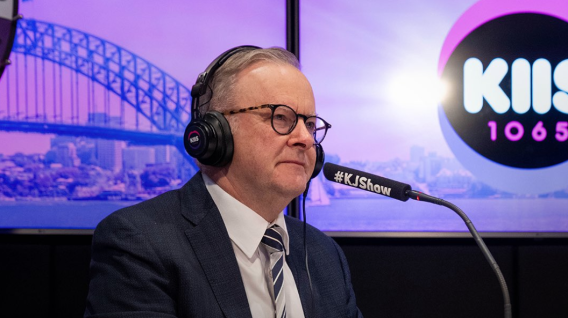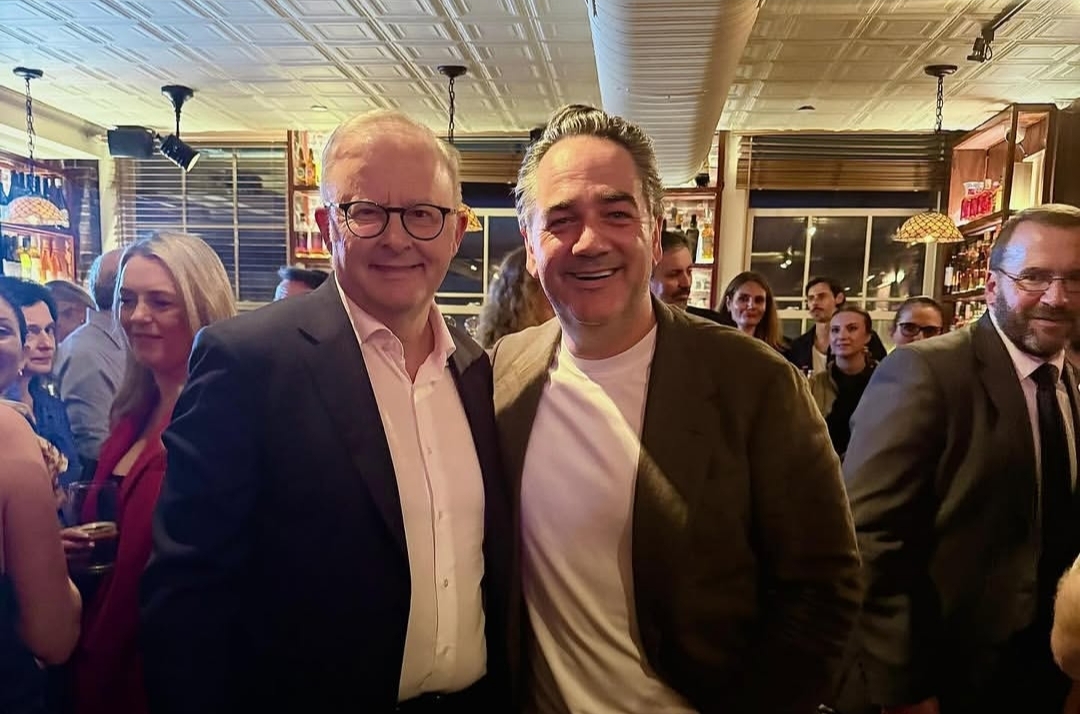
One month out from youth social media ban, PM still vague on details

Anthony Albanese on a previous appearance on The Kyle and Jackie O Show (Anthony Albanese/ X)
With just one month to go until Australia’s social media ban for under 16s comes into play, the Prime Minister Anthony Albanese has done a series of media interviews to spruik the initiative. While Albanese has been upbeat about the benefits and opportunities the new rules will have, he has remained light on details about what will actually happen, and how, come 10 December.
Albanese appeared on Sydney’s top-rating FM breakfast show The Kyle and Jackie O Show on ARN’s Kiis FM this week, and said the system will be comprehensive and won’t simply rely on parents enforcing the ban.
“There’ll be a bit more than that because the social media companies, of course, know so much about us. That’s the truth. That’s the way the algorithms work. If you’re a cricket follower, then you get cricket things pop up on your feed. That’s the reality. And we know that that’s the case,” he said.
Enjoying Mumbrella? Sign up for our free daily newsletter.
On rival Sydney breakfast show, Nova 96.9’s Fitzy and Wippa with Kate Ritchie, Albanese told the trio – including Michael ‘Wippa’ Wiplfi who was integral in pushing for the ban – that it was “about giving people power back to families”.
“Australia is leading the way. We should be proud of that and proud of the fact that it is families themselves who have led this campaign, ably assisted by people like Wippa, who’s been just fantastic at showing courage and speaking out and organising the petitions and the campaign. And in one month’s time we’ll be there,” he said.
“And this is not about government, this is about people and looking after our youngest Australians. One of the issues that people are conscious of is that a young person under this age doesn’t have the capacity to discern some of what is real and not real, doesn’t have the ability that an adult has. And human brain development occurs in those early years and it is just about giving them back their childhood,” he added.
Albanese assured both breakfast radio programs that the changes won’t involve forcing users to verify their age and identity by sharing a government-issued ID with the social media giants.
Beyond that though, the media blitz was light on details about what will happen, and how, on the changeover date.
“And on December 10 is a big date. You might have seen we’ve started the advertising campaign so that people are conscious of it,” he said on Nova.
“This is about letting kids be kids. But it’s also about empowering parents to have those conversations with their young ones. And the great thing about this I think is more so than anything I’ve ever seen, this is a grassroots movement that’s come from the bottom up. Particularly has come from parents who have gone through tragic circumstances, lost their young son or daughter, and channelled that trauma and grief into trying to make sure that doesn’t happen to others.
“So, December 10 will be an important day and the government is busy preparing. We’ve been engaging, of course, with the social media companies and making sure that they’re very conscious of the fact that they have a social responsibility as well.”

Prime Minister Anthony Albanese with Michael ‘Wippa’ Wipfli in New York celebrating the looming social media ban for kids (36 Months)
Previously, the eSafety commissioner, Julie Inman Grant, released Regulatory Guidance for social media companies. The 55-page document made it clear the onus will be on the platforms themselves to determine what steps to take in order to make the rules work – rather than the government laying out the specific frameworks.
The guidance suggested such steps may include “systems, technologies, people, processes, policies and communications”.
Examples such as relying on self-declaration of age would not be considered reasonable, the document noted. It also flagged it does not want those who are of age being mistakenly removed or blocked from the platforms as a result of poor implementation measures.
“Providers should avoid unreasonable practices that risk over-blocking access or infringing on the rights of Australians,” the document said.
“For example, requiring all existing Australian account holders to prove their age using an age verification system may be unreasonable and is not necessary for compliance – particularly in circumstances where the provider could use existing data to infer with reasonable confidence that certain end users are over 16.”
The shadow minister for communications, Melissa McIntosh, has slammed the government for being ill-prepared for the deadline.
“It is extraordinary that a year on from the social media age minimum being legislated, the Albanese Labor Government is still scrambling over the details of the under-16 social media ban that begins on 10 December,” McIntosh said.
“There are still several things the government has not been clear about with the Australian people, including whether a platform can compel Australians to use digital identification for age verification, and even which platforms are going to be included.”


